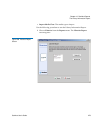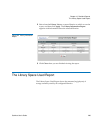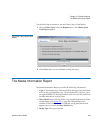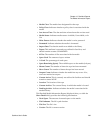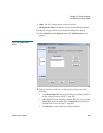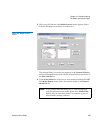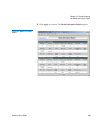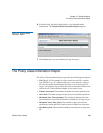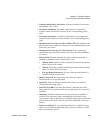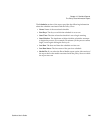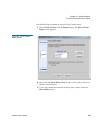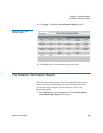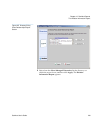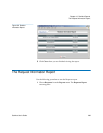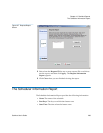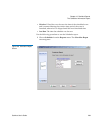Chapter 12 StorNext Reports
The Policy Class Information Report
StorNext User’s Guide 287
• Truncate Immediately After Store: Indicates whether files truncate
immediately after a store
• Checksum Validation: If enabled, checksums are compared to
retained values for the files retrieved by the corresponding policy
class
• Checksum Generation: If enabled, checksums are generated and
retained in the database for files stored by the corresponding policy
class
• Minimum Set Store Size (1 to 999 in MB or GB): The minimum size
that all valid store candidates in the policy class combined must reach
before they are stored
• Maximum File Store Age (1 to 720 in hours): If any valid store
candidate in the policy class reaches this value, all valid candidates
are stored
• Disk-to-Disk: Indicates whether the disk-to-disk functionality is
enabled or disabled for the selected policy class
• Affinity From: If disk-to-disk is enabled, the name of the primary
affinity where a file resides
• Affinity To: If disk-to-disk is enabled, the name of the secondary
affinity to which the file relocates
• File Age Before Relocation: The age a file must reach before it
becomes eligible for relocation
• Media Clean Pool: The class name with which the media is
associated after it is logically blank
• Stub Files: Indicates whether the Stub File feature is enabled or
disabled for the storage policy
• Stub File Size (KB): If the Stub File feature is enabled, this is the
target stub file size specified when the storage policy was created or
modified
• AutoStore: Indicates whether the Autostore feature is enabled or
disabled. The Autostore option automatically stores files for the
current policy class. If this feature is disabled, Quantum recommends
that the files for the policy class be stored by scheduled events (see
below).
• Retrieve to Affinity: If you enabled the Retrieve to Affinity feature
when you created or modified the policy class, the affinity to which
files are retrieved is shown.



